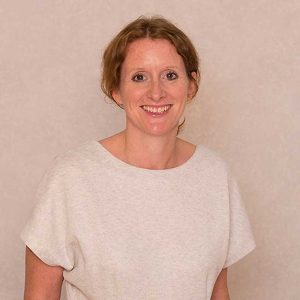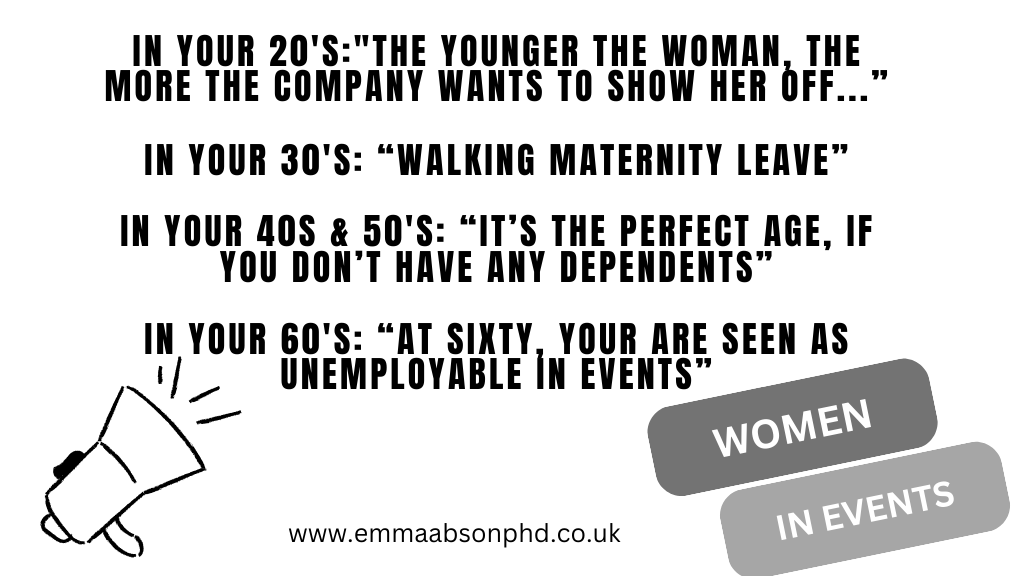 Dr Emma Abson gives her take on research which suggests that women can struggle to fit in the event industry at any age, along with some tips on how employers in the sector can tackle ageism…
Dr Emma Abson gives her take on research which suggests that women can struggle to fit in the event industry at any age, along with some tips on how employers in the sector can tackle ageism…
During a recent research project into women’s leadership careers in the event industry, we found that there is a mythical ‘perfect’ age for women in events. It’s that sweet spot when you are not seen as being too young or too old. But when might that be?
It’s not when women are in their 20s – at this stage of their careers, they are often viewed as too young and inexperienced. Younger women in the event industry report that they are often patronised, not taken seriously or just valued for their ‘youthful aesthetic’ (yep, that’s right – how they look!)
It’s not when women reach their 30s either. This is of course the stage in life when many women start families – women who do so face numerous barriers in the event industry, which doesn’t facilitate the flexibility in work that they often need.
Moreover, women with children are viewed as less committed to their work and are given fewer opportunities. For those women who don’t have children, things do appear to be better – though a few of them told us that they were still treated cautiously because of the assumption that one day they might have children after all.
Perhaps the perfect age is when women reach their 40s or 50s? I’m afraid not. That’s when women are often trying to return to work after a ‘career break’ and juggling family commitments. People don’t want to hire them, and they certainly don’t want to promote them – what a risk! (and yes, women still do most of the childcare and home-related responsibilities).
As women reach their 60s, they told us that employer’s confidence in their abilities and knowledge slipped away, and they were no longer seen as relevant. They developed use-by-dates.
So is there a perfect age for women working in the event industry?
I’m afraid the answer appears to be no. I don’t know if it’s the same for men, but I suspect it’s not. So, let’s call it what it is – it’s ageism and it’s sexism.
We have a leaking pipeline in the event industry – we are continually losing women in their 30s who can’t make having a family work with event work. And we know that we have women of all ages who feel like they don’t fit.
Women are the backbone of the event industry and women of all ages have a huge amount to offer – they have experience, knowledge, expertise and understanding. There should be space for all women – no matter their age – in the event workplace.
As I mentioned at the start of this post, these findings emerged as part of a wider, ongoing research project. Whilst I can’t offer definitive proof that the event industry has a problem with age, these preliminary results along with the many discussions I’ve had with women working in events, suggest that it’s likely there is. We need so studies that investigate how widespread ageism in events is, so we can start to phase it out.
All event workers should be valued for their skills, abilities, experience and / or potential. Here’s some small wins that all event organisations can do to address the ageism in the industry:
1. Check your hiring processes. Remove requirements to provide age on the CV, and ensure job descriptions are inclusive for all ages. Words matter and people with great experience might be put off by words associated with being younger (digital native / youthful environment / young / vibrant / fresh)
2. Diversity audits: Conduct a diversity audit of your workforce – this will highlight all manner of issues!
3. Training and development: ensure everyone has access to CPD opportunities.
4. Ask yourself if organisational culture is age-inclusive. Do you encourage multi-generational teams? Where / when do you socialise? Do you support teams to see past stereotypes and to concentrate on experience and skills?
5. Ensure organisational policies are age-neutral. Check age is included in anti-discrimination / diversity policies and ensure any DEI / unconscious bias training includes age-related bias
6. Internal language: the way we talk about age impacts on the way we feel about ageing. Eradicate the use of ‘past it’ ‘having a senior moment’ ‘old man / old woman’. Switch to positive images of ageing and older people to help shift attitudes. At the same time, avoid patronising young people.
7. Recognise all contributions: Give praise, recognition, training AND PROMOTION opportunities to everyone in the workforce.
Dr Emma Abson is an event leadership expert. She is an academic, researcher, trainer and consultant – for further information on the work she does and how she might be able to support your organisation, see www.emmaabsonphd.co.uk or connect on LinkedIn.

